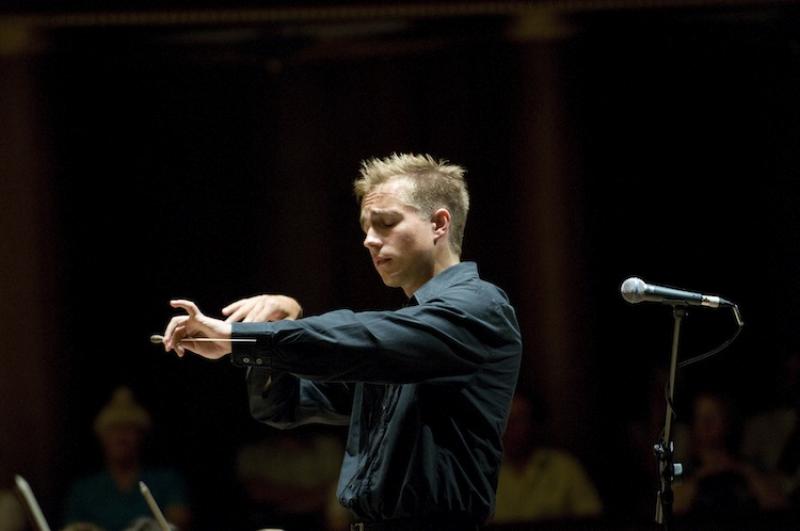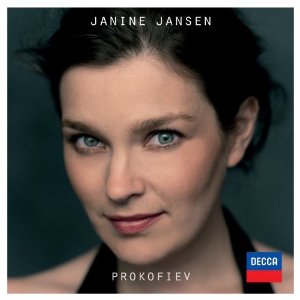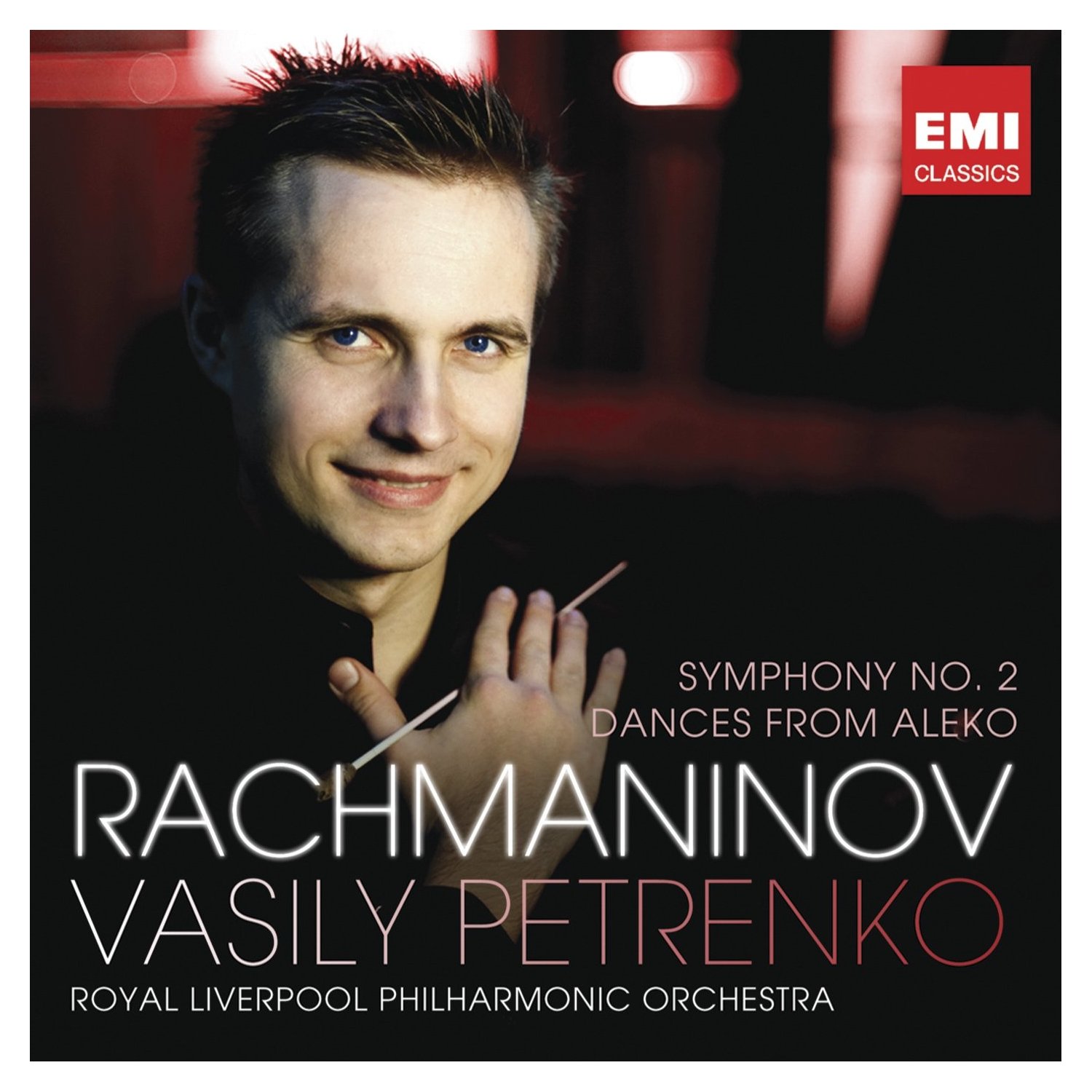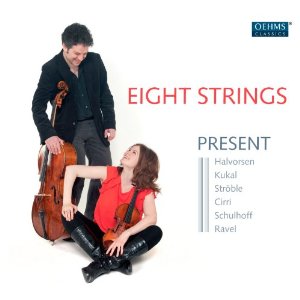Classical CDs Weekly: Prokofiev, Rachmaninov, Eight Strings | reviews, news & interviews
Classical CDs Weekly: Prokofiev, Rachmaninov, Eight Strings
Classical CDs Weekly: Prokofiev, Rachmaninov, Eight Strings
Two discs of Russian gloom and some invigorating string duets


Prokofiev’s Violin Concerto no 2 was completed just before the composer’s return to Russia in the mid-1930s. It’s a more elusive, evasive work than its magical predecessor; fairytale enchantment replaced by a greyer, dourer countenance. Prokofiev in conventional symphonic mode never behaves as you’d expect him to. Smooth transitions become abrupt stops and starts, as the composer's imagination wanders off in unexpected directions. Janine Jansen and Vladimir Jurowski accentuate the first movement’s disquiet, only relaxing for the Andante Assai’s big tune, one of Prokofiev’s sweetest inspirations. Jansen’s charismatic, secure playing is intoxicating, each stratospheric high note perfectly tuned.
The couplings are unusual and welcome. The compact Sonata for Two Violins is an untypically spare, haunting work, Prokofiev's acerbic language superficially prefiguring that of Shostakovich’s later quartets. Shostakovich, however, would have struggled to write melodies as exquisite as those found in the sonata’s brief slow movement. Music ostensibly in C major is rarely this unsettling. Here, Jansen is joined by violinist Boris Brovtsyn. She collaborates with pianist Itamar Golan in the bleaker F minor Violin Sonata. It broods, snarls and spits, unsurprising for a work completed in 1946. Jansen nails the first movement’s spooky coda, and makes the rapturous Andante speak with touching restraint. All excellent – this is an intelligent, challenging anthology, unafraid to show us Prokofiev’s underappreciated darker side. Beautifully recorded too.

There’s always room in the world for another recording of Rachmaninov’s Symphony no 2, a piece which seems to get better and better with every hearing. Is this the greatest late-romantic symphony? I often think so. Modern performances are rarely disfigured by the savage cuts which were the norm until the likes of André Previn did so much to rehabilitate the work in the 1970s. This symphony needs time to breathe and exhale, space to gently unwind and ensnare the listener. Vasily Petrenko’s earlier discs of Rachmaninov’s later Symphonic Dances and Symphony no 3 are magical – lean, propulsive, and balancing the requisite nostalgia with this composer’s attractive, brittle late style. Here, he doesn’t feel quite as comfortable. Those expansive melodies never quite ebb and flow in the same way as they do in Previn’s hands, despite unhurried tempi, and the lithe, lean RLPO sound can’t help sounding a little pale when compared to the bass-rich 1970s LSO.
There’s still much to enjoy – the sonorous tuba entry a few minutes into the first movement’s Largo introduction, and the hair-raising climax in the Allegro moderato. There’s the brilliant attack of the tutti strings during the scherzo’s fugato section. The spooky processional at the heart of the same movement is another highlight, with deft orchestral percussion. The Adagio is beautifully, if coolly played; 14 minutes feels a little too brief. Petrenko’s dynamic last movement is a success, though I would have welcomed a bit more indulgence in the closing minutes. As couplings we get three instrumental extracts from Rachmaninov’s early opera Aleko. The best of them is the closing Men’s Dance; five minutes of exuberant, tambourine-heavy swagger.

Eight strings being those of a violin and a cello. After several hours of brooding Russian angst, I needed a palate cleanser, and this CD did the job nicely. There’s a bewildering range of colours and moods to be found in the playing of Valeria Nasushkina and Mikael Samsonov. At their best, it’s like hearing two vocalists sparring off one another, as in the heartfelt slow section at the heart of Ondrej Kukal’s Present, before the violent, folky faster music returns. The close recording balance is perfect for such aggressive, boldly-etched music. You can almost see the dust flying off the players’ bows. Tim Ströble’s Abschied offers some respite, as does a premiere recording of one of Giovanni Battista Cirri’s Duos for violin and cello. Here, the music’s straight-laced formality almost buckles under the strain of the players’ effervescent approach.
Erwin Schulhoff’s brilliant, tiny Zingaresca really fizzes, and Johan Halvorsen’s elegant variations on a theme by Handel encompass a bewildering range of moods. The disc closes with a minor masterpiece, Ravel’s 1922 Sonata. It’s beautifully played here, every rapid pizzicato exchange spat out with a mixture of spite and affection.
Buy
Explore topics
Share this article
The future of Arts Journalism
You can stop theartsdesk.com closing!
We urgently need financing to survive. Our fundraising drive has thus far raised £49,000 but we need to reach £100,000 or we will be forced to close. Please contribute here: https://gofund.me/c3f6033d
And if you can forward this information to anyone who might assist, we’d be grateful.

Subscribe to theartsdesk.com
Thank you for continuing to read our work on theartsdesk.com. For unlimited access to every article in its entirety, including our archive of more than 15,000 pieces, we're asking for £5 per month or £40 per year. We feel it's a very good deal, and hope you do too.
To take a subscription now simply click here.
And if you're looking for that extra gift for a friend or family member, why not treat them to a theartsdesk.com gift subscription?
more Classical music
 Goldscheider, Brother Tree Sound, Kings Place review - music of hope from a young composer
Unusual combination of horn, strings and electronics makes for some intriguing listening
Goldscheider, Brother Tree Sound, Kings Place review - music of hope from a young composer
Unusual combination of horn, strings and electronics makes for some intriguing listening
 theartsdesk Q&A: composer Donghoon Shin on his new concerto for pianist Seong-Jin Cho
Classical music makes its debut at London's K-Music Festival
theartsdesk Q&A: composer Donghoon Shin on his new concerto for pianist Seong-Jin Cho
Classical music makes its debut at London's K-Music Festival
 Helleur-Simcock, Hallé, Wong, Bridgewater Hall, Manchester review - moving lyricism in Elgar’s concerto
Season opener brings lyrical beauty, crisp confidence and a proper Romantic wallow
Helleur-Simcock, Hallé, Wong, Bridgewater Hall, Manchester review - moving lyricism in Elgar’s concerto
Season opener brings lyrical beauty, crisp confidence and a proper Romantic wallow
 Kohout, Spence, Braun, Manchester Camerata, Huth, RNCM, Manchester review - joy, insight, imagination and unanimity
Celebration of the past with stars of the future at the Royal Northern College
Kohout, Spence, Braun, Manchester Camerata, Huth, RNCM, Manchester review - joy, insight, imagination and unanimity
Celebration of the past with stars of the future at the Royal Northern College
 Jansen, LSO, Pappano, Barbican review - profound and bracing emotional workouts
Great soloist, conductor and orchestra take Britten and Shostakovich to the edge
Jansen, LSO, Pappano, Barbican review - profound and bracing emotional workouts
Great soloist, conductor and orchestra take Britten and Shostakovich to the edge
 Jakub Hrůša and Friends in Concert, Royal Opera review - fleshcreep in two uneven halves
Bartók kept short, and a sprawling Dvořák choral ballad done as well as it could be
Jakub Hrůša and Friends in Concert, Royal Opera review - fleshcreep in two uneven halves
Bartók kept short, and a sprawling Dvořák choral ballad done as well as it could be
 Hadelich, BBC Philharmonic, Storgårds, Bridgewater Hall, Manchester review - youth, fate and pain
Prokofiev in the hands of a fine violinist has surely never sounded better
Hadelich, BBC Philharmonic, Storgårds, Bridgewater Hall, Manchester review - youth, fate and pain
Prokofiev in the hands of a fine violinist has surely never sounded better
 Monteverdi Choir, ORR, Heras-Casado, St Martin-in-the-Fields review - flames of joy and sorrow
First-rate soloists, choir and orchestra unite in a blazing Mozart Requiem
Monteverdi Choir, ORR, Heras-Casado, St Martin-in-the-Fields review - flames of joy and sorrow
First-rate soloists, choir and orchestra unite in a blazing Mozart Requiem
 Cho, LSO, Pappano, Barbican review - finely-focused stormy weather
Chameleonic Seong-Jin Cho is a match for the fine-tuning of the LSO’s Chief Conductor
Cho, LSO, Pappano, Barbican review - finely-focused stormy weather
Chameleonic Seong-Jin Cho is a match for the fine-tuning of the LSO’s Chief Conductor
 Classical CDs: Shrouds, silhouettes and superstition
Cello concertos, choral collections and a stunning tribute to a contemporary giant
Classical CDs: Shrouds, silhouettes and superstition
Cello concertos, choral collections and a stunning tribute to a contemporary giant
 Appl, Levickis, Wigmore Hall review - fun to the fore in cabaret and show songs
A relaxed evening of light-hearted fare, with the accordion offering unusual colours
Appl, Levickis, Wigmore Hall review - fun to the fore in cabaret and show songs
A relaxed evening of light-hearted fare, with the accordion offering unusual colours
 Lammermuir Festival 2025, Part 2 review - from the soaringly sublime to the zoologically ridiculous
Bigger than ever, and the quality remains astonishingly high
Lammermuir Festival 2025, Part 2 review - from the soaringly sublime to the zoologically ridiculous
Bigger than ever, and the quality remains astonishingly high

Add comment